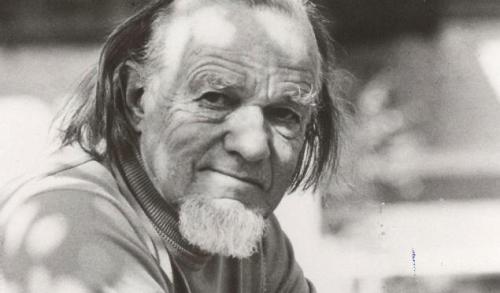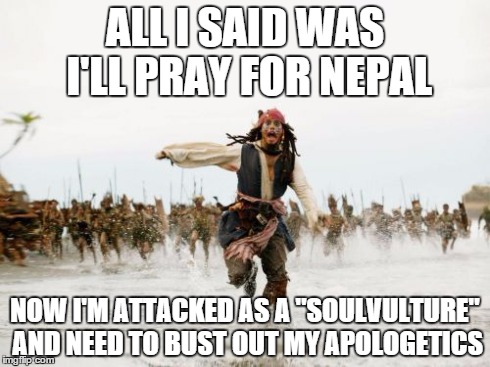
Peter Leithart. Traces of the Trinity: Signs of God in Creation and Human Experience. Grand Rapids, MI: Brazos Publishing Group, March 17th, 2015. 176 pp.
While the title of the book is “Traces of the Trinity,” this book is not so much about the Trinity per se as it is on the Trinitarian doctrine of perichoresis (the persons of the Trinity are mutually dwelling among each other while still remaining distinct persons). To be even more specific the author Peter Leithart is not merely examining the doctrine of perichoresis but an exploration of how there are traces of analogous “indwelling” found within God’s creation and creatures; and that we best account for these phenomenon in God’s creation and creatures from a Trinitarian worldview. I found this a surprisingly delightful read and in agreement with the thesis of the book.
Leithart is a professor of literature and his literary abilities shows. Readers won’t be bored with what he has to say. His witty manner of writing along with his wordsmith that paints powerful word pictures is similar to C.S. Lewis or Chesterton. I would also add that I am aware of concerns for the author’s theology in other areas and in particular with his soteriology and association with Federal Vision. I suppose my comparison of Leithart to Lewis and Chesteron does not end with their wonderful ability to write but also as writers whom I read for their keen insights while also realizing I need to be doctrinally discerning.
While this book is an exercise of applying a Trinitarian worldview, I did not expect that Leithart would be able to beautifully present his case in the manner that he did. This book is not a dry account of the Trinity nor is it the typical Van Tillian rehearsed presentation of the problem of the “One and the Many.” I imagine Leithart is familiar with the Van Tillian Trinitarian project given how he’s well read, is conversant with Reformed Theology and have endnotes citing John Frame and his perspectivalism. Yet Leithart’s discussion of Trinitarian worldview accounting for our reality has an originality that has a rhetorical beauty about it.
I was hooked right away with the first chapter with how Leithart tackles Cartesian dualism and refutes Descartes’ notion that the self is totally separated from the world which is so common of an assumption today since modernity (and post-modernity). Leithart makes the powerful observation that the individual thinking person (the self) is inter-connected with the world and vice versa. I love the book’s illustration about the windo having certain properities and yet it can’t be a window in its essence if it in not standing in relations to other things in the world such as a house and the outside world. The author notes the same thing is true with coffee cup and even the self. We as humans are in physical bodies which require the outside world such as food, oxygen, etc and thus the world indwell within the self while the self is also in the world. Leithart then moves on to make an analogous observation of this mutual indwelling with thought and the world as well (thought require content of the outside world, etc).
In a similar fashion, Leithart also has a wonderful discussion about the problem of the tension between the ultimacy of either the individual versus society, political and economic versus sociology. It was a bit remincient of Rushdoony’s Trinitarian work The One and the Many which he applies the Trinity as a solution to the philosophical problem of the One and the Many largely in its application to politics and history. But Leithart does it in a more concise manner. He also refutes Hobbes and Locke in a way that I found refreshing and different!
Leithart’s observation of the Trinitarian traces of indwelling also looks at love, time, philosophy of language, music, ethics, and rationality. In the final chapter he ties all the loose ends by a fuller discussion of the Trinity. His postscript in which he deals with objection against his argument must also not be missed. No doubt some might be reading this review and ask if Leithart’s thesis is sustainable in light of the difference of the Triune God from His creation and creatures. Leithart acknowledges the need to preserve the doctrine of Creator/creature distinction but also not the importance of understanding God’s creation accurately along with the importance of understanding the doctrine of analogy (in the Van Tillian sense). He doesn’t just make philosophical moves and over-reach with the use of biblical analogies but instead notes the Scripture does appeal to the Intra-Trinitarian relationships to apply something to God’s creature or creation.
I do recommend the book. Even among all the books out there in recent years with an Evangelical revival of Trinitarian theology, this book does have something refreshing to say. Again, when I recommend this book I recommend it with the same spirit I recommend people the works of Chesterton: read with doctrinal and biblical discernment.
NOTE: This book was provided to me free by Brazos Publishing Group and Net Galley without any obligation for a positive review. All opinions offered above are mine unless otherwise stated or implied.
Purchase: Amazon
Read Full Post »

















